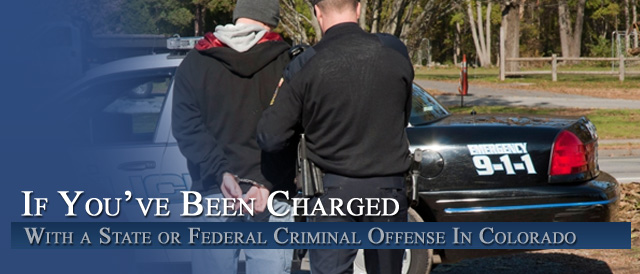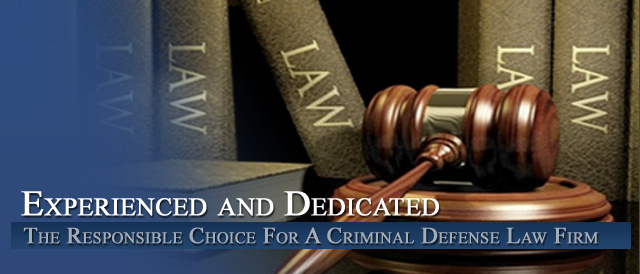




When the Colorado Criminal Sentence is Unfairly Long – Proportionality Review
Whether a sentence is constitutionally proportionate is a question of law, and can be appealed to the Colorado Court of Appeals. The lower court’s decision is reviewed by the Appellate Court de novo. That means the court takes a completely fresh look at the issue of the proportionality of the sentence.
A defendant who is convicted under the Habitual Criminal Statute is entitled to a proportionality review of his or her sentence under the law. Unlike a death penalty case, the Defendant is entitled to a shortened version of a proportionality review called an abbreviated review. An abbreviated proportionality review consists of a comparison of two sub-parts:
1. The gravity of the offense and
2. The harshness of the penalty to discern whether an inference of gross disproportionality is raised.
In almost every case, the abbreviated proportionality review will result in a finding that the sentence is constitutionally proportionate, thereby preserving the primacy of the Colorado State Legislatue in deciding sentencing issues
When conducting an abbreviated proportionality review under the habitual criminal statute, a reviewing court must scrutinize the offenses in question to determine
“whether in combination they are so lacking in gravity or seriousness” so as to suggest that the habitual criminal sentence is grossly disproportionate.
Because the defendant has already been sentenced, and presumably served such sentences, for the underlying crimes upon which the habitual criminal adjudication rests, the appellate court assesses the gravity or seriousness of the triggering crime together with the gravity or seriousness of the underlying crimes when determining whether a sentence under the habitual criminal statute is unconstitutionally disproportionate.
A court determines whether a crime is grave or serious by considering the harm caused or threatened to the victim or to society and the culpability of the offender.
In evaluating the harm caused or threatened, relevant considerations include whether the crime involves violence, and the absolute magnitude of the crime (e.g., theft of a large amount usually can be viewed as more serious than theft of a small amount, other circumstances being the same).
Generally, a lesser-included offense is not as serious as the greater-inclusive offense, an attempt to commit a crime is less serious than a completed crime, and an accessory after the fact who acts after the crime is committed should not be subject to a higher penalty than the principal.
In evaluating the culpability of the offender, one state, South Dakota’s created a descending scale of culpability, ranking acts as malicious, intentional, knowing, reckless, or negligent. Motive is also relevant.
South Dakota Court’s evaluate cases as follows: When the sentence does not raise an inference of gross disproportionality, it may stand. If, and only if, an inference of gross disproportionality is raised, must the ‘abbreviated’ proportionality review be followed by an ‘extended’ proportionality review.”
The lower or “trial court” has discretion to control the character and scope of the evidence that is presented concerning constitutional proportionality.” In some cases, a court may need to examine the facts underlying the offenses in question in order to assess the harm caused or threatened to the victim or society and the culpability of the offender.
As noted above, when a defendant challenges the proportionality of his or her sentence on appeal, an appellate court may conduct an abbreviated proportionality review. In deciding whether to remand a case back to the lower court for a new sentence, an appellate court first considers the inherent gravity of the offenses and determine whether an abbreviated proportionality review is appropriate. Only when an extended proportionality review is required must an appellate court remand the case back to the lower court.
In One Recent Colorado Case the Court’s Analysis sheds light on the process the Colorado Court of Appeals follows:
In reaching its assessment that the habitual criminal sentence for the theft conviction (the present offense) was not grossly disproportionate, the trial court made clear it was considering factors from the probation report that were not connected to the two prior convictions it found to exist (the predicate offenses). Defendant contends that this consideration was error, because the proper analysis involves assessing “the gravity or seriousness of the [present offense] together with the gravity or seriousness of the [predicate offenses].” See Deroulet, 48 P.3d at 525.
United States Supreme Court authority indicates that defendant’s position may not be supported by the law. See Ewing v. California, 538 U.S. 11, 29-30 (2003)(plurality opinion)(upholding constitutionality of California’s “three-strikes” law, and stating that the defendant’s “sentence is justified by the State’s public-safety interest in incapacitating and deterring recidivist felons, and amply supported by his own long, serious criminal record”).
However, we need not address defendant’s argument because, after conducting our own proportionality review without reference to information about defendant that is not directly connected to the present and predicate offenses, we reach the same conclusion as the trial court. See Gaskins, 825 P.2d at 37-38. Based upon our evaluation of the information in the record concerning the present offense and the predicate offenses, we conclude that, in combination, they were sufficiently grave and serious to support the 18-year habitual criminal sentence. See id.
Here, one of the predicate offenses was based on defendant’s guilty plea to the felony of stealing an automobile in Missouri in 1998. The second predicate offense was based on a guilty plea to the felony of larceny of an automobile, which arose out of a single criminal episode occurring in Idaho and Wyoming in 2004.
The trial court stated that the Missouri theft conviction was not per se grave or serious. See Deroulet, 48 P.3d at 524 (per se grave and serious crimes include aggravated robbery, robbery, burglary, accessory to first degree murder, and narcotics-related offenses). However, these three convictions represent a pattern of stealing cars that extended over eight years. The pattern indicates that the crimes were planned and intentional, arising out of a motive to obtain the property of others illegally. Automobile theft is a significant offense. See Ewing, 538 U.S. at 28 (“[T]he Supreme Court of California has noted the ‘seriousness’ of grand theft in the context of proportionality review.”).
Therefore, even assuming, without deciding, that the present offense and the two predicate offenses were not individually grave or serious, we conclude that, in combination, they were sufficiently grave and serious to support a conclusion that defendant’s 18-year sentence was not extreme and grossly disproportionate to defendant’s crimes. See Deroulet, 48 P.3d at 527; Close v. People, 48 P.3d 528, 536 (Colo. 2002); People v. Penrod, 892 P.2d 383, 387 (Colo. App. 1994)(class four felony conviction for aggravated motor vehicle theft “may not be characterized as lacking in gravity”).
The judgment of conviction is affirmed. The habitual criminal sentence for theft is affirmed.
Other Articles of Interest:
- Understanding and Defending Against Colorado Habitual Criminal Charges
- Pre-Sentence Investigations
- Running Away – Evidence Of Flight In Colorado Criminal Cases – What Does It Mean?
- Presentence Investigation
- Colorado Criminal Law – Can I Be “Punished” By A Heavier Sentence If I Appeal – 18-1-409?












